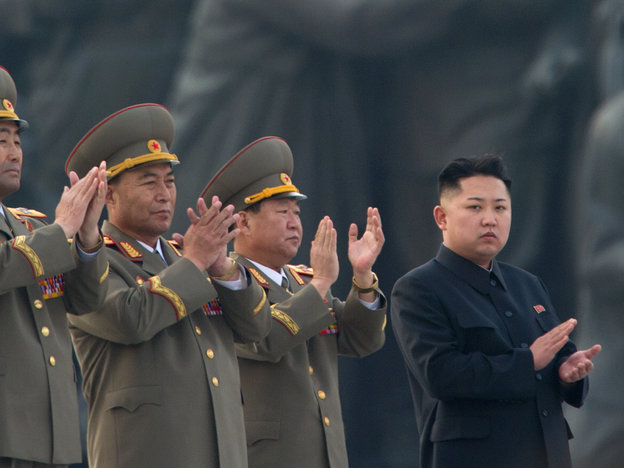Why Negotiations Are Important
North Korea might have nuclear weapons, but their current program lacks the capability to really challenge the US and its allies in North Korea’s immediate neighbourhood. Should North Korea someday develop the means to carry out a nuclear attack on South Korea or Japan, conducting such an attack would be suicidal as both states have assurances that any significant nuclear attack from the North would invite an American nuclear response; and despite media sources frequently characterizing the Kim Jong Un regime as “irrational” and “mad”, it is far from suicidal. Rather, the regime is bent on self-preservation and ensuring the survival of the Kim dynasty. As such, North Korean provocations are usually little more than sabre rattling meant to emphasize the regime’s power to both domestic and international audiences. Overall, considering the US’s overwhelming nuclear superiority, as well as the regime’s own interest in remaining the uncontested ruling power in North Korea, the DPRK under Kim Jong Un is unlikely to carry out a nuclear attack on one of its adversaries, even if it were capable of doing so.

However, the international community has a vested interest in pursuing negotiations with North Korea over its nuclear program, even if the program does not constitute an immediate security threat. There are two reasons why the international community should continue to push denuclearization talks with North Korea: first, should the country become unstable, the Kim regime may become more desperate and more likely to use its weapons, or they could fall into the wrong hands; and second, failing to stop North Korea from advancing its program may encourage other rogue powers to do the same.
Assuming that the Kim regime is rational and not self-destructive, it would be difficult to fathom a scenario where carrying out a nuclear attack against an American ally would yield positive results for North Korea. There is such a disparity between North Korean and American nuclear capabilities that the DPRK would not survive long in a nuclear exchange. However, should internal strife lead to the collapse of the Kim regime, the subsequent instability and uncertainty surrounding the control of the state’s nuclear warheads could have dangerous consequences. Depending on how the state were to unravel, military and political elites desperate to hold on to power could resort to using nuclear weapons against domestic adversaries, or if the regime were to lose control of its nuclear stockpile, warheads could be smuggled out of the country and sold to terrorist factions.
With the socioeconomic and political problems that plague North Korea, which include widespread poverty and starvation, the complete absence of social and political freedoms, and the prevalence of state-inflicted human rights abuses, there is a real possibility that these conditions could stir substantial domestic opposition to the regime. This in turn could cause the destabilization of the North Korean state, with drastic implications for global security. As a result, the denuclearization of North Korea should be a priority for the international community, and states involved in the Six Party Talks should attempt to restart negotiations, especially if socioeconomic conditions in North Korea continue to decline.

Additionally, if North Korea continues to advance its nuclear program without major resistance, it would indicate that the sanctions and condemnations issued by the international community have failed to effect any change in the state’s behaviour. This would be a major setback for the non-proliferation movement and nuclear diplomacy, as the efforts made by the US and UN Security Council since the early 1990s to halt North Korea’s advances would essentially have been meaningless. North Korea’s success in overcoming sanctions could persuade other rogue nations, such as Iran, to develop their own nuclear programs, as the ability of the international community to effectively punish states seeking nuclear weapons would be severely discredited.
The only way such an outcome could be avoided is to push North Korea back to the negotiating table. Restarting the Six Party Talks is the first step to ensuring nuclear diplomacy does not lose its legitimacy, but even if there is little or no progress made on North Korea’s program, publicizing the mutual benefits of denuclearization – that is, sanction relief and foreign aid in exchange for freezing nuclear activities – could still be effective in deterring other states from pursuing nuclear weapons.
Bringing Everyone to the Table
Clearly, North Korea’s nuclear program is an issue of international importance that has significant implications for regional – if not global – security. To reduce the possibility of issues arising, states involved in the Six Party Talks and the international community as a whole should work together to restart negotiations with North Korea.

China’s participation is particularly important, as North Korea’s economy is largely dependent on Chinese exports. North Korea relies on China for roughly 90 percent of its energy, 80 percent of its consumer goods, and 45 percent of its food, resulting in an overall high dependency on Chinese trade. Such dependency gives China more leverage in dealing with the regime, and the Chinese must play an integral part in future negotiations. Though China has long been an important ally of North Korea, Beijing expressed its concern over Pyongyang’s nuclear program following its first nuclear test in 2006, and has become increasingly frustrated with North Korea for continuing its missile and nuclear tests. Xi Jinping’s recent visit to Seoul where he joined President Park in condemning North Korea highlights this frustration, and it appears China’s patience with Pyongyang is running out. The challenge for China is to use its leverage to bring North Korea to the negotiating table without having to resort to crippling sanctions, which could destabilize the country.
Though the Six Party Talks have failed to produce any meaningful results since they began, and are currently on an indefinite hiatus, states involved in the negotiations have a lot to gain from renewing them. Now might be the perfect time to do just that, as China’s support for the regime is wavering due to North Korea’s increasingly hostile behaviour. North Korea must be aware of its growing isolation, and coupled with the state’s desperate economic situation, the country stands to benefit as much from denuclearization as the international community does. Though the regime may be reluctant to give up its major source of power, the dire socioeconomic situation in North Korea and the changing attitude of China may be enough to convince the regime to rethink its policy.




